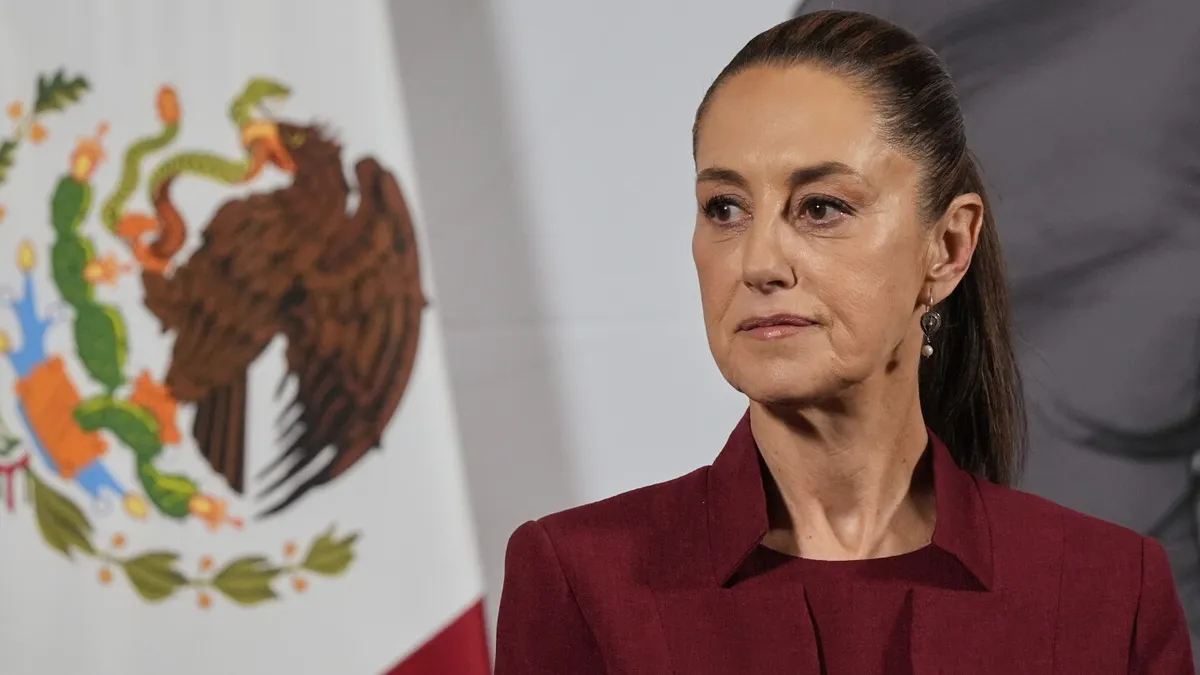
MEXICO CITY (AP) — In a significant political development, Mexican President Claudia Sheinbaum revealed on Saturday that U.S. President Donald Trump proposed sending American troops to Mexico to assist her administration in combating drug trafficking. President Sheinbaum, addressing supporters in eastern Mexico, firmly rejected the proposal during her remarks, emphasizing the importance of national sovereignty.
Sheinbaum's comments were made in response to a recent article by the Wall Street Journal, which detailed a tense phone call between her and President Trump that took place last month. According to the report, Trump urged her to accept a more significant role for the U.S. military in fighting against drug cartels in Mexico. Sheinbaum recounted Trump’s suggestion, stating, “He said, ‘How can we help you fight drug trafficking? I propose that the United States military come in and help you.’ And you know what I said to him? ‘No, President Trump.’”
During her address, Sheinbaum reiterated her commitment to defending Mexico's sovereignty, asserting, “Sovereignty is not for sale. Sovereignty is loved and defended.” Her strong words reflect a broader sentiment among Mexican officials regarding foreign intervention in national security matters.
In response to Sheinbaum's comments, James Hewitt, a spokesperson for the White House National Security Council, issued a statement affirming that Trump has worked closely with Mexico’s president to secure what he termed “the most secure southwest border in history.” Hewitt acknowledged the ongoing threat posed by dangerous foreign terrorist organizations, which he claimed jeopardize shared security and contribute to drug and crime issues affecting American communities.
The statement further emphasized that President Trump has been clear about Mexico needing to take stronger action against these gangs and cartels, while the United States remains ready to assist and enhance cooperation between the two countries.
In recent months, the U.S. military presence along its southern border with Mexico has steadily increased. This escalation follows Trump’s order in January to deploy more military resources to curb the flow of migrants. The U.S. Northern Command has sent additional troops and equipment to the border, ramped up manned surveillance flights to monitor fentanyl trafficking, and sought expanded authority for U.S. Special Forces to collaborate with Mexican forces on operations against drug cartels.
On February 19, Trump designated numerous gangs and cartels involved in drug smuggling into the U.S. as foreign terrorist organizations. This classification restricts their movements and provides law enforcement with additional resources to combat them effectively.
Sheinbaum's firm stance against U.S. military intervention signals a potential collision course between her administration and Trump's, particularly after a period of cooperation on issues like immigration and trade. “We can work together, but you in your territory and us in ours,” Sheinbaum concluded, underscoring her administration's position on maintaining national sovereignty while seeking collaborative solutions.